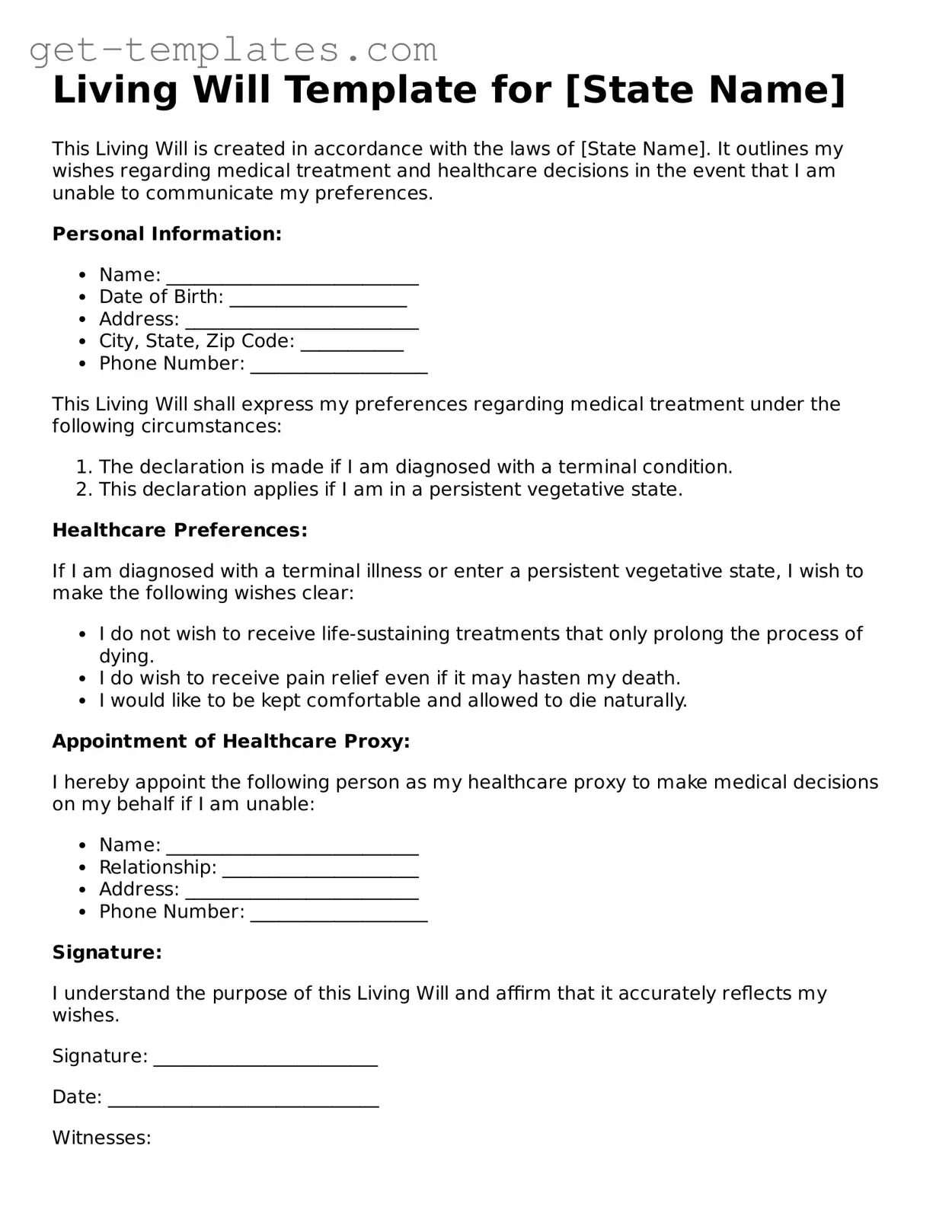What is a Living Will?
A Living Will is a legal document that outlines an individual's preferences regarding medical treatment in situations where they may be unable to communicate their wishes. It specifically addresses end-of-life care and can guide healthcare providers and family members in making decisions aligned with the individual's desires.
Who should consider creating a Living Will?
Any adult can benefit from having a Living Will. It is especially important for those with serious health conditions, individuals undergoing major surgery, or anyone who wants to ensure their healthcare preferences are known and respected. Creating a Living Will can provide peace of mind for both the individual and their loved ones.
What types of decisions can be included in a Living Will?
A Living Will can address various medical treatment preferences, including:
-
Resuscitation efforts (CPR)
-
Mechanical ventilation
-
Feeding tubes
-
Pain management
-
Organ donation
Individuals can specify which treatments they do or do not want, based on their values and beliefs.
How is a Living Will different from a Power of Attorney for Healthcare?
A Living Will specifically outlines medical treatment preferences, while a Power of Attorney for Healthcare designates a person to make healthcare decisions on behalf of the individual if they are unable to do so. Both documents can work together to ensure that an individual's wishes are honored.
Do I need a lawyer to create a Living Will?
While it is not mandatory to have a lawyer, consulting with one can provide valuable guidance. Many states offer templates and resources to help individuals create a Living Will on their own. It is essential to ensure that the document complies with state laws to be valid.
How do I ensure my Living Will is legally valid?
To ensure validity, follow these steps:
-
Check state-specific requirements for Living Wills.
-
Complete the document accurately.
-
Sign the document in the presence of witnesses, if required by your state.
-
Have it notarized, if necessary.
Keeping the document in a safe place and sharing copies with family members and healthcare providers is also recommended.
Can I change or revoke my Living Will?
Yes, individuals can change or revoke their Living Will at any time, as long as they are of sound mind. It is important to notify any healthcare providers and family members of any changes made to ensure that everyone is aware of the current wishes.
What happens if I do not have a Living Will?
If an individual does not have a Living Will, healthcare providers will typically follow standard medical protocols and may rely on family members to make decisions. This can lead to confusion or disagreements among family members regarding treatment preferences, which may not reflect the individual's wishes.
Where should I keep my Living Will?
Store the Living Will in a safe, accessible location. Consider keeping copies with trusted family members, your healthcare provider, and any legal representatives. Inform key individuals about the document's location to ensure it can be easily retrieved when needed.
Is a Living Will the same as a Do Not Resuscitate (DNR) order?
No, a Living Will is broader in scope, covering various medical treatments and decisions. A Do Not Resuscitate (DNR) order specifically instructs healthcare providers not to perform CPR in the event of cardiac arrest. Individuals can include a DNR preference in their Living Will, but it is a separate document that may require additional steps to implement.

